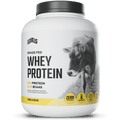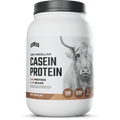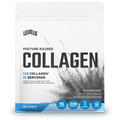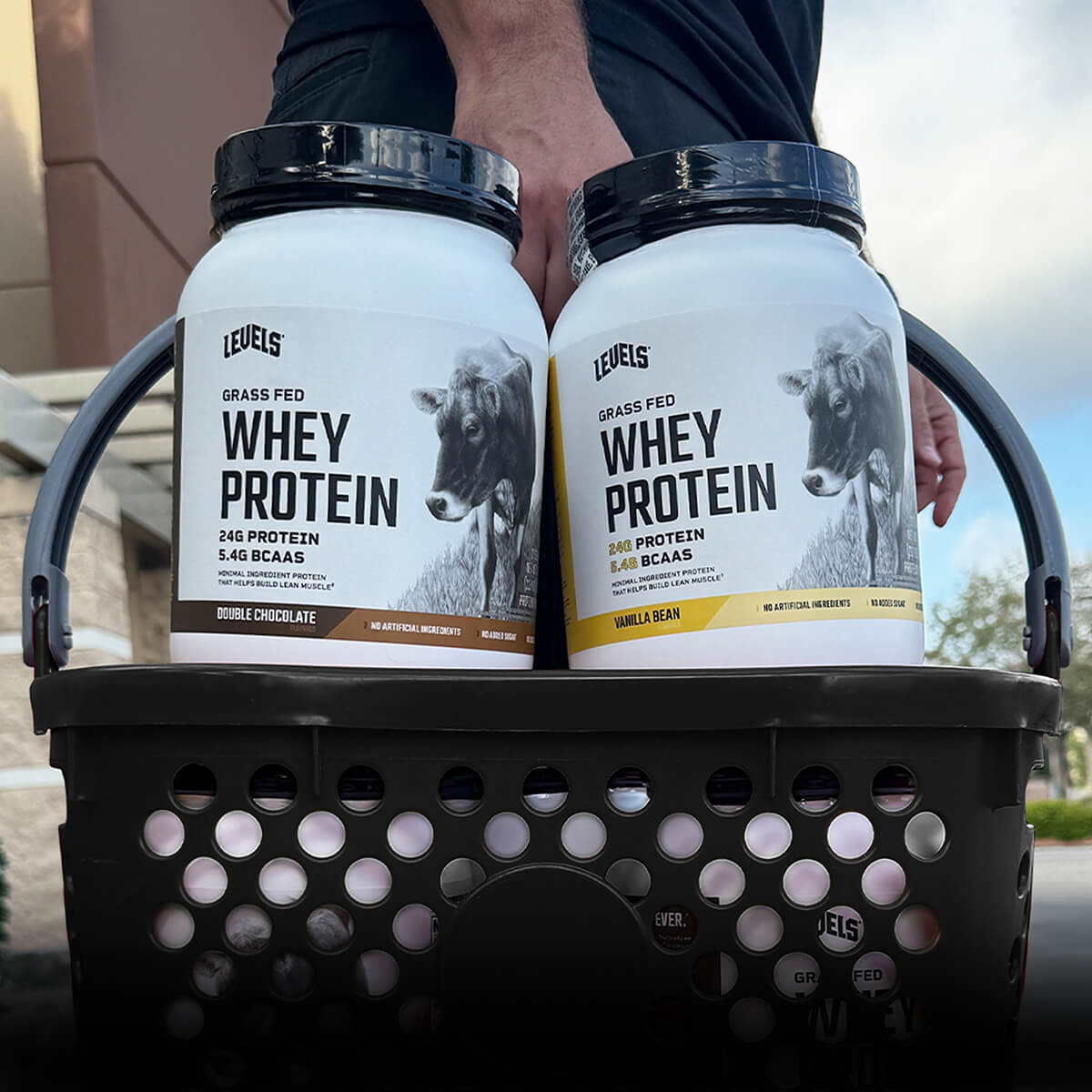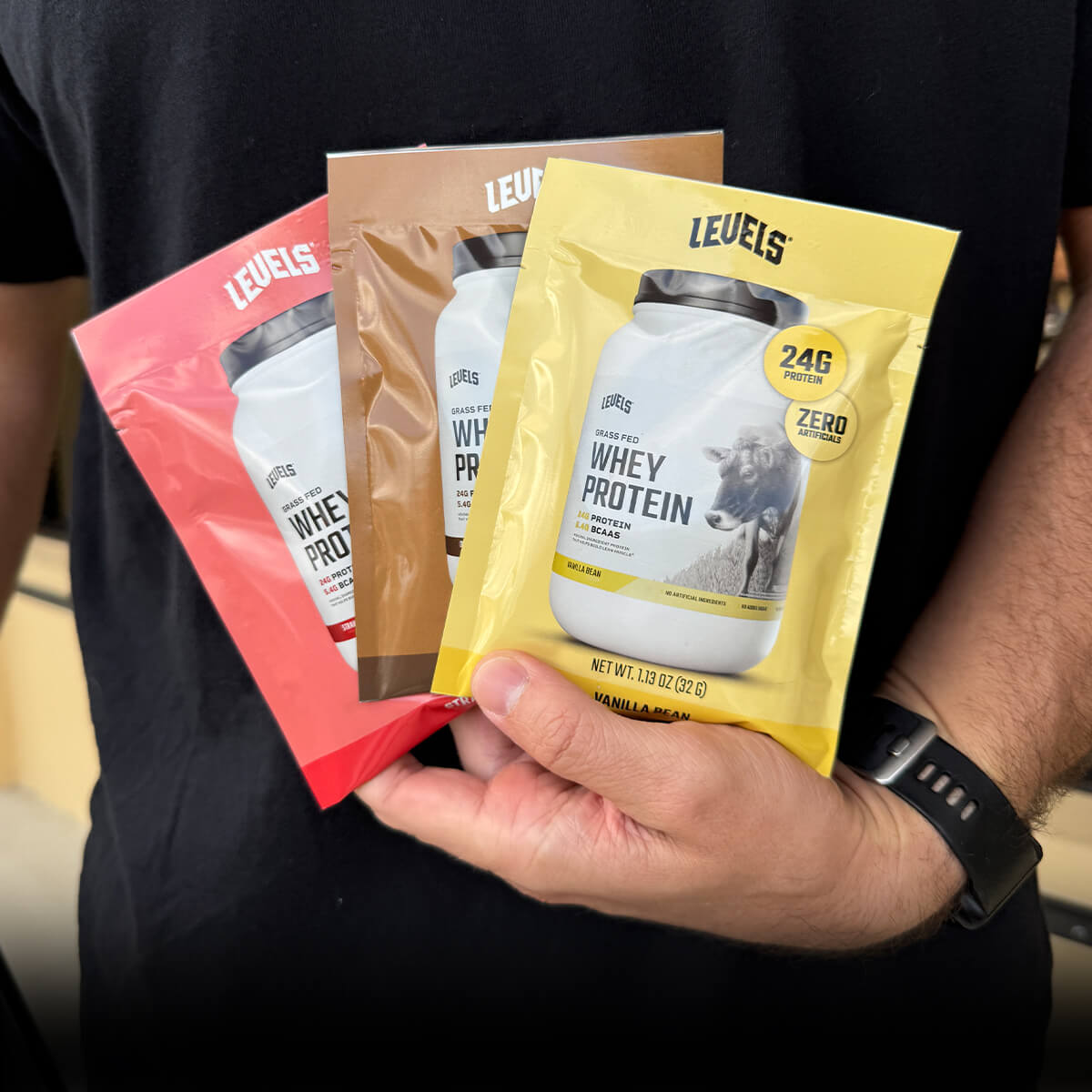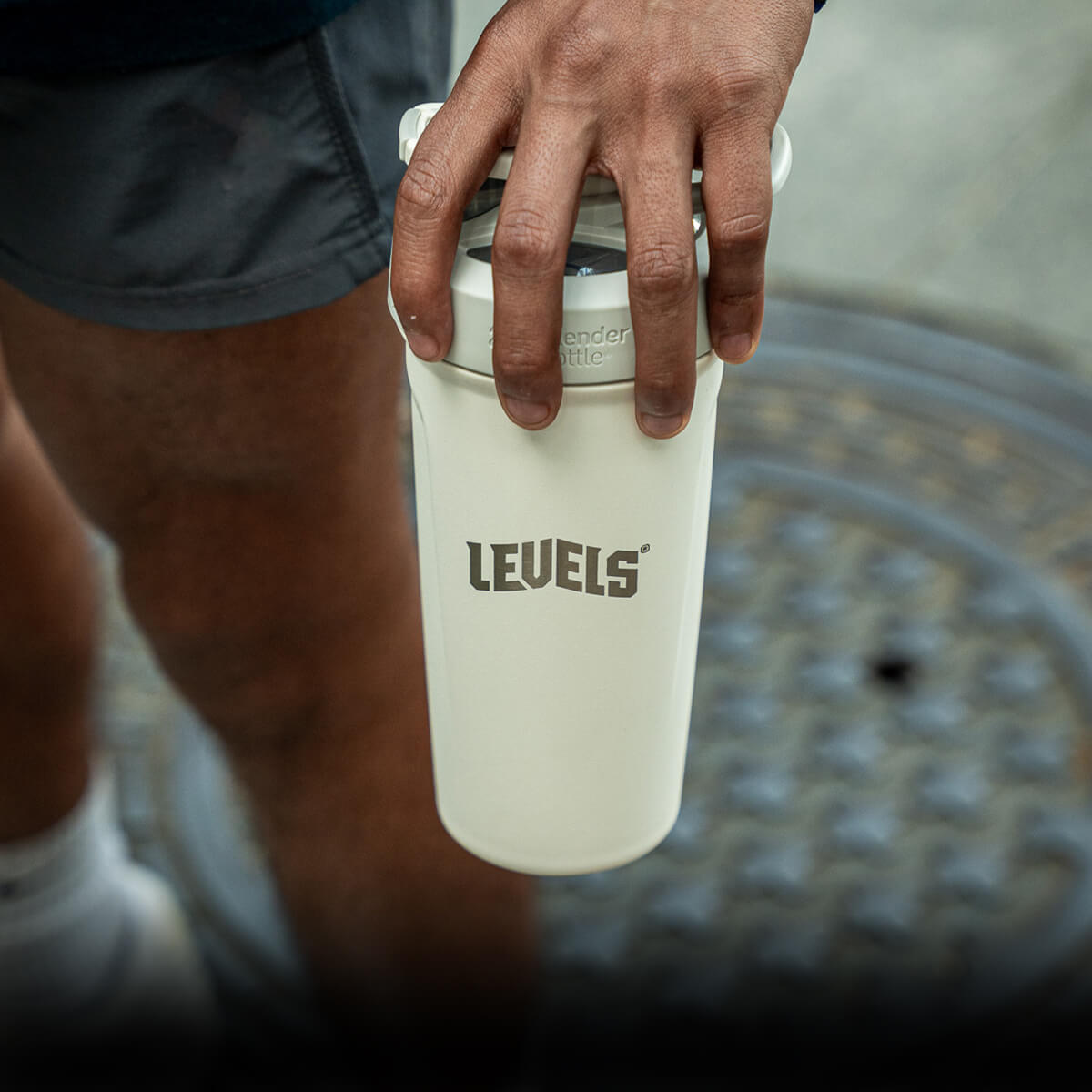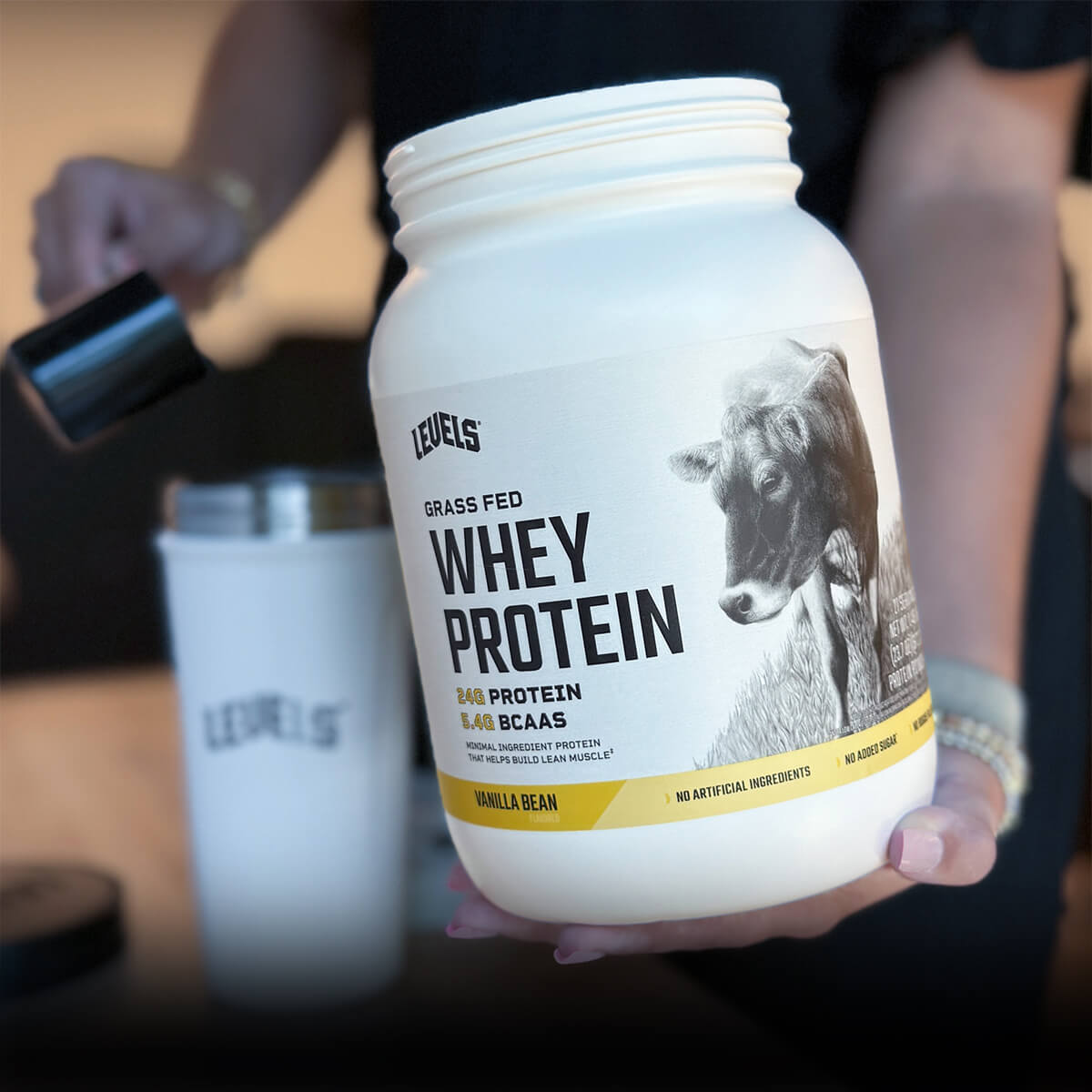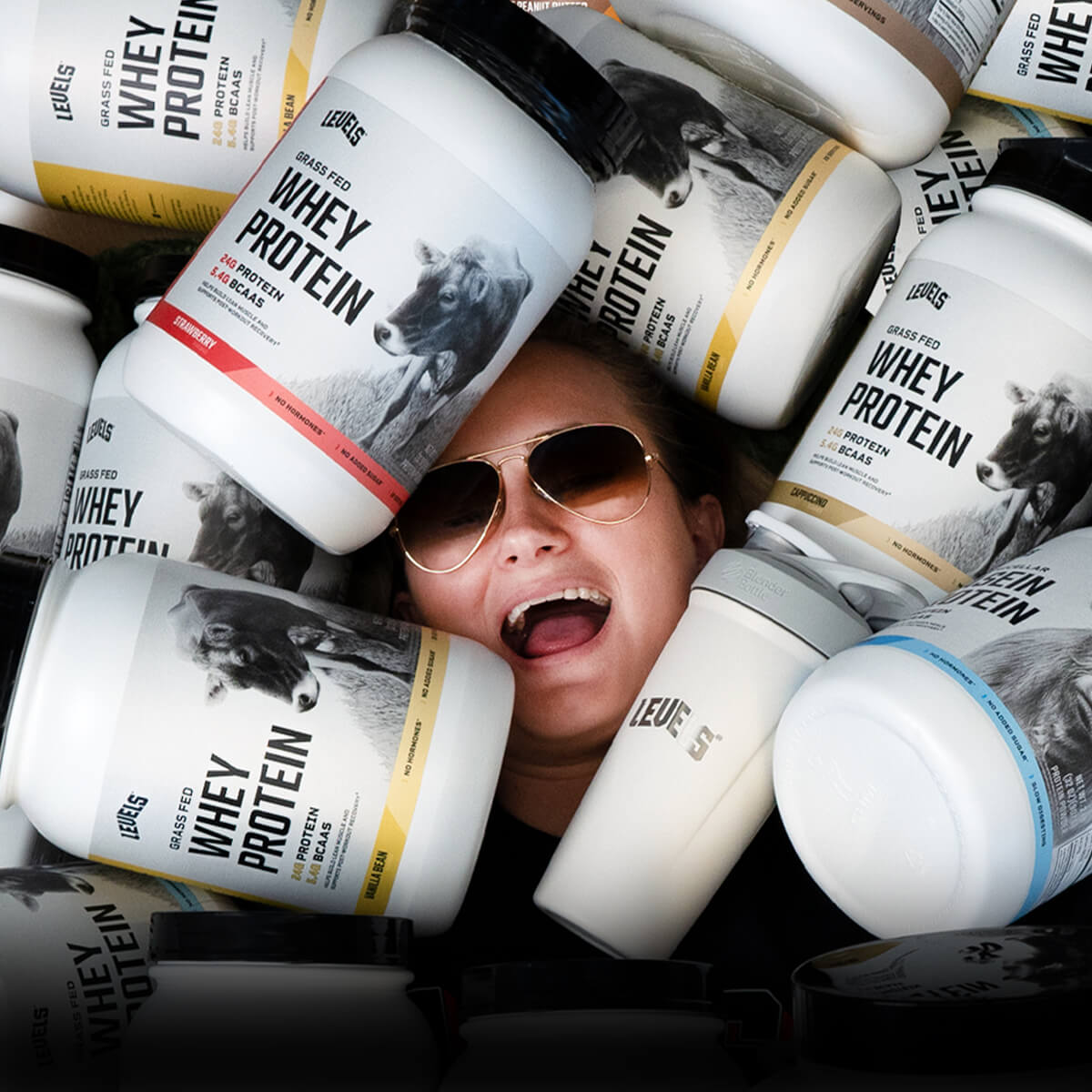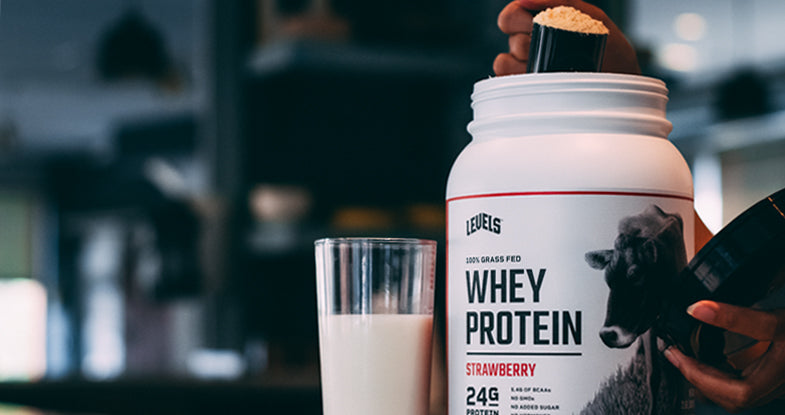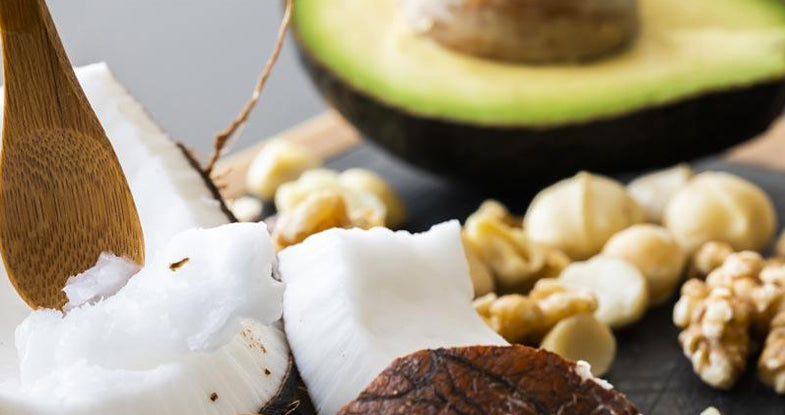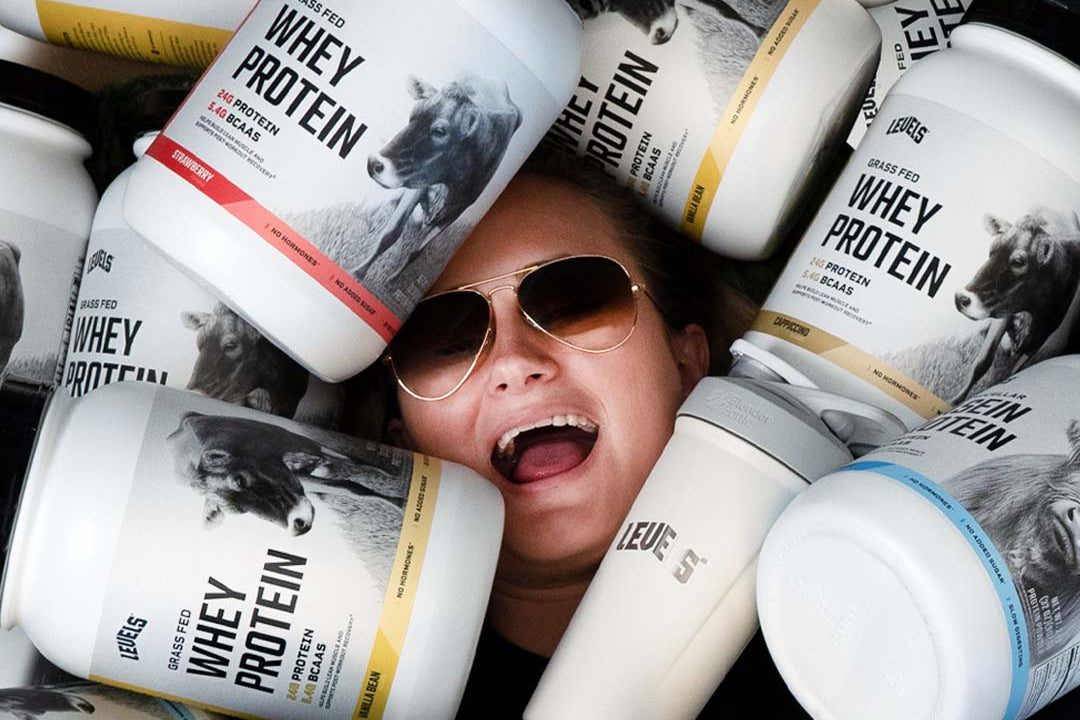Protein timing matters, but probably not how you think.
Whether your main goal is fat loss, fitness, or building muscle, you’re about to learn the best time to take protein, as well as other tips that will optimize your results.
Keep reading to learn everything you need to know about protein timing, plus other questions you didn’t even realize you had.
Why is Protein Necessary for Workouts?
When you exercise, the wear and tear from movement causes microtrauma to muscle fibers. Because your muscles are mainly protein, your body relies on available amino acids and proteins to repair the tiny muscle tears.
Microtrauma elevates your body’s protein requirements after exercise. If you exercise regularly, that means your protein needs will be elevated all the time when compared to people who don’t exercise[*].
Your body is capable of repairing itself using stored amino acids, but this method is less efficient than drinking protein shakes or eating protein-rich foods[*].
And eventually, due to limited amino acid stores, insufficient protein intake results in incomplete recovery (from all exercise) and decreased muscle growth (from weight training in particular).
Over time, inadequate protein intake can cause the loss of hard-earned lean muscle mass, and losing muscle is bad news for your health and fitness[*][*].

Simply put, exercising without sufficient protein can be detrimental, and may have the opposite of the intended effect: decreased fitness and loss of lean muscle mass.
But beyond the basics of supply and demand, optimizing your protein intake can boost your results even further.
Protein Quality vs. Amount
In reality, not all protein is created equal. Along with your total intake, the type and amount of amino acids (the building blocks that make up dietary protein) affect your results.
The larger the amount of essential amino acids (EAAs), branched-chain amino acids (BCAAs), and leucine contained in a protein source, the more it boosts your recovery and muscle protein synthesis[*].
(Of all protein powders, whey protein has the most EAAs, BCAAs, and leucine, which is why we recommend it for people who work out[*].)
Now, let’s dive into a much more controversial area: the best time to take your protein relative to working out.
Pre-Workout vs. Post-Workout Protein Shake: Which is Better?
The short answer: it’s complicated, but most research suggests they may work equally well.
As for the longer answer, we’ll begin by taking a look at some facts and myths about protein timing.
Is There an Anabolic Window Post-Workout?
Some people believe there’s an “anabolic window” or limited time period that dictates optimal protein timing post-workout.
For example, you may have heard that you only have 30 minutes to consume a protein shake after lifting, or else your gains will be compromised.
While some research partially supports this idea, none of the studies are particularly strong[*]. Many of them suffer from inconsistencies or other issues.
At the end of the day, the people who make a strong case for a post-workout anabolic window aren’t doing it on the basis of scientific evidence. That doesn’t automatically make them wrong, but they don’t have an ironclad argument, either.
Here’s our take at Levels: for anabolism (muscle growth), it can’t hurt to drink a protein shake within 30-60 minutes of lifting--but don’t stress out if you leave your shake at home by accident, either.
Subscribe to get the latest advice, sales, discounts, product drops and more. Join now and get 15% off your first order.
Is Glycogen Replenishment Essential?
Glycogen replenishment is another reason some people take the timing of their shakes seriously.
Your body can store glucose for energy in the form of glycogen. Unless you trained hard recently or follow a very-low-carb diet, you have approximately 600 grams of glycogen stored in your muscles and liver[*][*].
During prolonged, intense exercise, glycogen plays a critical role as an energy source[*].
Some people add carbs to their protein shake to replenish glycogen lost during exercise, but is this practice necessary? And if so, when?
Here’s when it makes sense to consume carbs and protein during or after your workout:
- If your workout approaches the 90 minute mark or longer, carbs during your workout can fuel performance and help prevent muscle loss[*][*].
- If you’re training twice a day, you’ll want to replenish glycogen in between training sessions to sustain your performance.
Also, if you do need glycogen replenishment ASAP, a mix of protein and carbs appears to do the trick faster than carbs alone[*].
For rapid glycogen replenishment, try a 4-to-1 ratio of simple carbs to protein. For example, a 400-calorie blend of 80 grams dates, strawberries, or oats (blended with a blender) with 20 grams whey protein.

Glycogen Depletion, Fat Burning, and Muscle Protein Synthesis
On the other hand, there are also times when it may be best not to replenish glycogen right away after lifting.
Research suggests that you can burn more fat by avoiding carbs and maintaining a glycogen-depleted state post-workout, and this practice doesn’t appear to reduce muscle protein synthesis[*][*][*][*].
Therefore, if your goal is fat loss (or you just want to stay lean), lifting weights or performing HIIT to deplete glycogen and then eating protein instead of carbs after training could improve your results.
Some research even shows that post-workout carbs make no difference in muscle protein synthesis, or that low glycogen does not reduce muscle protein synthesis[*][*].
If or when carbs do boost muscle protein synthesis, the effects are likely due to increased insulin levels or reduced protein oxidation, the latter of which you can also achieve using sufficient protein intake[*][*].
Otherwise, there is no rush to consume carbs during or after training, and waiting to eat carbs probably enhances fat loss without compromising muscular growth.
Protein Timing and EPOC
EPOC stands for excess post-exercise oxygen consumption. Another name for EPOC is “afterburn.”
Think of EPOC as shorthand for “calories your body burns as it returns to baseline after exercise.”
A few studies show that consuming protein pre-workout can boost your EPOC, which is to say, you’ll burn more calories after you train if you drink a protein shake first[*][*].
But how much of an increase?
One study found a 6 calorie (kcal) difference between protein and no-protein groups over 2 hours, while another found an increase of approximately 80 calories (kcal) 24 hours after lifting with pre-workout protein[*][*].
Suffice to say, EPOC from protein timing is not a game-changer for fat loss.
Protein Timing, Performance, Recovery, and Fitness
As you may have noticed, there’s no strong evidence that pre- or post-workout protein timing makes a meaningful difference in muscle growth, glycogen (most of the time), or EPOC-related calorie burn.
And at least one head-to-head study has shown comparable results when it comes to pre- vs. post timing[*].
But just because pre- and post-workout protein timing studies don’t show huge differences doesn’t mean you should altogether dismiss the idea of having protein around the time you train.

For one thing, as the authors of 2018 paper from Frontiers in Nutrition point out, there’s no practical advantage to delaying your protein intake after you finish training, only potential downsides[*].
Overall, there’s a good chance that consuming protein during or immediately after exercise is more effective than consuming protein an hour or more after training[*].
And endurance athletes, listen up: a meta-analysis of 11 studies found an immediate 9% increase in performance from consuming protein and carbs pre-exercise compared to carbs alone[*]. You don’t need protein and carbs before every practice session, but the evidence suggests it’s a winning strategy for competition.
Now that you’re up to speed on the research, here’s some common sense advice: If you’re an athlete, a fitness enthusiast, or you want to build muscle by lifting weights (how else?), it pays to experiment with pre- versus post-workout protein timing!
At their best, studies measure the average response of large groups of people who aren’t you. If you want the ultimate personal insight around protein timing, measure your own response in terms of performance, fat loss, or muscle building.
You may not be able to control for every variable, but you can still get a pretty good idea of what works for your body.
Why Total Protein Intake May Be More Important (Than Protein Before or After A Workout)
Research shows that your daily total protein intake may matter more than protein timing.
Beyond the bare minimum to stay alive, which is what the recommended daily allowance (RDA) for protein represents, eating extra protein each day can boost your results[*].
And surprisingly, even if you eat more protein than your body can convert to muscle, it can still decrease protein breakdown in your muscles[*].
Here’s an equation to understand what’s happening:
(muscle protein synthesis) - (muscle protein breakdown) = net muscle protein synthesis
When it comes to building muscle, “net muscle protein synthesis” refers to the results you get to keep--your gains, in other words.
Eating plenty of extra protein increases your overall muscle-building for the day by reducing muscle protein breakdown[*]. Think of it as increasing your bottom line by decreasing losses.
And if you’re concerned about consuming excessive protein, know that a high daily protein intake is unlikely to be an issue--unless you are dehydrated or have pre-existing kidney problems[*].
How Much Protein Do I Need For Working Out?
At Levels, we recommend men and women make a protein shake with 40 grams of whey protein or more post-workout to gain lean muscle or recover from intense exercise.

As for daily protein intake for muscle, strength, or hard training, we recommend starting with 25-30% of calories from protein, then going up from there if you feel a need to fine-tune.
Therefore, if you eat 2500 calories per day, we advise about 160-190 grams of total protein per day to build muscle mass.
The frequency of protein shakes you consume is secondary to your overall protein intake when it comes to working out.
Basically, you could consume as little as a single whey shake on lifting days only (post-workout), or you could have 2-3 shakes a day to ensure you’re getting adequate protein.
Does Protein Timing Matter At All, Ever?
As we covered earlier, getting extra protein some time during or after your workout, getting high-quality protein, and getting enough protein are all key for good results.
But what about timing protein intake strategically at other times? Can that make a difference in your fitness, recovery, or muscle building?
Turns out the answer is probably yes!
One study found that among already-trained men who were following a strength training program, a schedule of consuming protein once every 3 hours was superior to intervals of 1.5 or 6 hours[*].
Basically, that means eating protein with the correct timing and frequency could be beneficial for your strength training results.
In contrast, another recent study found that protein timing throughout the day may not have any helpful effect for overweight people who lift weights but aim to lose fat[*].
Other research suggests that if you want to maximize muscle protein synthesis, 30-40 grams of slow-acting casein protein before bed is effective[*].
To sum up, it’s undeniable that protein timing matters sometimes, but equally true that it’s not the all-important factor some people make it out to be.
Key Takeaways and Closing Thoughts
If you skipped to the end or need a summary, here are the key insights from this article:
- Pre-workout compared to post-workout protein timing isn’t the game-changer some people claim (for building muscle, performance, recovery, or fat loss).
- You should definitely consume protein before, during, or after your workout--there’s certainly no benefit to delaying it, and there may be downsides.
- Carbs during or after training are good for performance if you train twice a day or longer than 90 minutes, but are mostly neutral for muscle building, and are bad for fat loss.
- Total protein intake probably trumps protein timing.
- Whey protein and high-quality whole foods will give you the fastest recovery and best muscular gains.
- For muscle building and recovery consuming protein every 3 hours is better than two large daily doses or smaller and more-frequent “pulses.”
- Day-to-day protein timing matters less for fat loss, even if you lift weights.
Take a moment to digest the above info and you’ll find most of your questions are answered.
But along with all the research-based insights about protein intake, other cutting-edge data indicates that the amount of calories you eat could help determine protein synthesis and recovery[*].
At this time, scientifically speaking, the exact caloric cost of building muscle is unknown, and eating extra calories may boost muscle growth independently of resistance training or protein intake[*].
Therefore, unless your goal is pure fat loss, obtaining a caloric surplus is a great way to ensure the best results along with protein intake and timing.
And by the same token, your best bet for fat loss is creating a caloric deficit through diet and exercise, with protein intake and timing being important secondary considerations.
